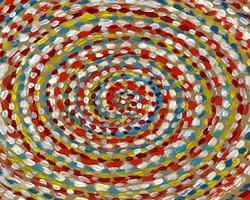There are three main themes concerning virginity that have obsessed human beings for millennia. One is whether or not a woman is a virgin when she is ready to marry. The second has to do with the virginity of certain goddesses like Artemis and Mary mother of Jesus, and the other is the whole question of virgin birth of great saints like Osiris, Jesus, and Buddha. In this article we will touch on all three. We will concentrate on virginity as it applies to women even though males can be virgins too. This is because historically the social importance is placed on female virginity and not so much on whether a male is one even though a male may have feelings about whether he is one or not.
Historically the subject of virginity is important whether a tribe or society has been patriarchal or matrilineal and therefore there are a great many historical belief systems that influence the matter not the least of which is economics and how wealth passes from one generation to the next. All this we will touch on this article. Why is this important at this time? On our recent trip to Turkey, Lena and I had the opportunity to visit many ancient Greek Goddess temples, much of Turkey being formerly occupied at one time by the ancient Greeks. Some of these goddesses were adopted and renamed by the Romans and many other peoples who conquered the lands of present day Turkey over many centuries. We learned that today there is a movement among the Greeks and many other peoples around the world to revive the ancient goddess beliefs and practices regarding Goddess worship. Naturally there is controversy over what it meant that many of these Goddesses were considered virgins and whether it is important to emulate them by leading a celibate life. And then of course there are the Christians and their controversies about virginity, purity, sexual abstinence, and virgin birth and of course there are other religions as well that we shall not name here.
Throughout history there have been many important goddesses who shared the title of Holy Virgin: Astarte, Aphrodite, Artemis (Diana, the Roman version of Artemis), Venus, Ishtar, Anat, and Mary are just a few among the many from different time frames and various traditions. Why were they all considered virgins especially since some of them were known as love Goddesses? To begin with we need to consider the early meanings and understandings of the term virgin and also consider translation problems, considering that translation to modern day English came through Aramaic, Greek, Latin, and sometimes other languages as well. There is a great deal of room for the old adage, “lost in translation.”
Anthropologists have long speculated that the importance of virginity arose from the spread of patriarchal societies that placed importance on the purity of the line of descendants, heirs to land, wealth, and kingdoms. This was the case in ancient Greece where the term Parthenos arose to describe the state of virginity of young unmarried women. In all truth this term was highly complex and could mean a variety of things. Nevertheless if we consider this particular translation, fathers carefully guarded their daughters to ensure their virginity until the day of their betrothal. In this way husbands could be assured that the children were their genetic descendants, their own heirs. Of course if no one knew about a tryst or two with lovers this would not matter in the long run. So the importance of being virgin actually meant without having had prior children or even known children since the bride may have disposed of secret progeny by giving them away or even aborting them. In the event they kept the children they could be known as virgin births, something we will deal with shortly.
Among the ancient Greeks however the designation virgin did not necessarily have to do with sexuality. Therefore the usual translation of the word Parthenos to mean virgin is highly misleading and in many cases just plain inaccurate. In some cases the word parthenos or virgin referred to a woman who was highly independent and autonomous, not answering to one man, not tied in marriage, or not playing the usual role of the female in a family. In other words it referred to a certain level of freedom and power that these women exhibited. Eventually the term virgin became the label for priestesses of the temple who engaged in sacred sex rites with various men. Sex was sacred in those ancient times and thus the Holy Virgins of the temple had various duties to heal, to dispense wisdom, to prophesy, to wail for the dead, to perform sacred dance, to facilitate ceremony, and to transmit the goddess’ divine grace through sacred sexuality. They were known as “Brides of God” a term later used with a very different interpretation for Mary, mother of Jesus and the nuns of the Catholic Church.
These designated virgins were a far cry from the cloistered young women being held like specialized brood mares for their eventual husbands, also known as Parthenos or virgins. With such widely diverse meanings, we could well ask, “Will the real virgins stand up?” It would seem then that the designation of virgin had more to do with what someone believed rather than a set of biological facts.
Therefore without understanding the beliefs of the time it is not possible to fully understand the meaning of what it meant to be a virgin in ancient Greece. Let us add another interesting note to our understanding of the importance of virginity to the ancient Greeks whose beliefs have so influenced the world. The belief of the times was that men were fully proactive beings and women were purely receptive beings. When a man penetrated a woman it was thought that his essence entered her vagina and permanently changed her in the respect that she became full of him and thus everything that came from her was a reflection of his essence. This belief came from their belief in symmetry, that the lower half of the body matched the upper half and that the right mirrored the left and vice versa. Thus the Greeks believed a woman’s mouth mirrored her vagina and anything that entered into her vagina would be emitted through her mouth. This is the belief that lay behind the Oracle of Delphi, where a priestess prophesied by sitting over the sacred gases emitted from a vent in the floor of a special cave. The gases believed to originate from the God Apollo were believed to rise up and penetrate her vagina and thus her words were in actuality Apollo’s prophesies. She of course was considered to be a bride of the God Apollo, never speaking for herself.

Remote Shamanic Healing
Each month, around the new and full moons, Jose, Lena or Anna leads a remote shamanic healing session. These approximately 30 minute sessions are designed to be experienced in a quiet, safe place free from distraction. Even if you cannot join live they can be very powerful, and always include a good clearing and beautiful icaros. These are live webinars where you cannot be seen or heard. You can hear the practitioner and see their altar for that evening. Recording access is included for 48 hours afterwards. See the product description for dates and times.
Many of the Goddesses of the time were more than mere translators for Apollo. They had powers in their own right and things to say yet how could they be seen as independent if everything they said came directly from her husband. The solution in the peoples’ minds was that these goddesses could never have had sex and therefore their words could be their own wisdom. So they had to be virgins in the sense that they were not filled with a man’s essence. In the myths and legends however they often had lovers, but not a husband and this was considered acceptable somehow to qualify for being a virgin.
So you can see that the term virgin was twisted around to suit the beliefs of the times and allowed women to be many things, powerful, sexually independent, pure for the descendent line of heirs, mere voice boxes for men, and so on, even though some of these things contradicted each other. In other words, the whole business was a bit crazy and not entirely rational even though attempts were made to have it all make some sense. Anybody who thinks they know what a virgin actually is, is fooling themselves. Historically it was a convenience to suit whatever one needed to believe at the time. Women have known this for millennia and have manipulated facts to suit the situation, the beliefs of the time, and the man she was marrying. In many ways it is still like this in many parts of the world. After all, why be concerned about a little sexual wandering on the way to becoming a virgin bride who can wear the white dress. Both men and women have often looked the other way in the face of obvious transgressions.
What about virgin birth
Virgin birth is a whole other matter. There was a time when many tribal peoples of the world considered all births to be virgin. That is that even though they had regular intercourse and knew that intercourse led to pregnancy among animals and people, they considered every birth to be from spirit and therefore equivalent to a virgin birth. In a way this made the most sense of all because it was egalitarian and highly accurate, shamanically speaking. Of course these tribes were mostly matrilineal and there was not a concern around inheritance and genetic lineage. Later matriarchal societies placed importance on virginity because if a woman gave birth out of wedlock it was said to be divine or of the Gods and the child was considered special, affording the child a high status or special opportunities. So having a child in this fashion could be considered another version of the virgin birth.
For much of human history powerful and masterful individuals were thought to have originated from virgin births. Among their many positive traits they were believed to be transcendent, serving spirit, unselfish, and compassionate, even if of course in actuality they were not. Alexander the Great, Plato, and Pythagoras were all believed to be born of women, not by male insemination but by the power of the Holy Spirit. Asclepius the healer, Buddha, Krishna, Jesus, Odysseus, Glycon, Sargon, Minos, Heracles, all the Caesars of Rome, Zoroaster, Miletus, Jason, Perseus, Romulos, Dionysus, all the Ptolemies of Egyot, Horus, Osiris, and Zeus himself were among many historic figures and gods thought to have come from virgin births. However, rather than taking this literally, people of the times knew that it was a largely symbolic designation. Obviously not all the Caesars fit the bill of selflessness but since they were the authority they were said to be of virgin birth even though these very human and deeply flawed figures had actual fathers. Thus coming from virgin birth was largely an honorary designation meant to convey a type of greatness. Notice that Virgin births seem to be the domain of male children, not female.
The pre-Christian Gnostics held that virgin birth meant that essence that comes into the body came from the union of Sophia (Holy Spirit) and the male father God. In a way this was very similar to the beliefs of ancient matrilineal based shamanic tribes. They did not believe virgin birth was meant literally or physically speaking. Their views reflexed the views of many in those times.
When Mary mother of Jesus came along she inherited the title of Virgin Mary or Holy Virgin from the historical notion of virgin goddesses. However in contrast to the Gnostic beliefs and Greek beliefs, the Christians placed great emphasis on Mary’s physical virginity and on the virgin birth of Jesus. To this day they believe that it confirms that Jesus was fully human, yet fully divine. As the Christian religion was developing there was great speculation about exactly how this virgin birth happened. Some thought Jesus flew into her womb with the wings of an angel and others thought God whispered words under her skirt in the tradition of the early Greeks beliefs in the receptive quality of women. Still others thought God whispered the Word in Mary’s ear and that is how she became pregnant. Today most Christians believe the Holy Spirit in the form of a dove came down onto Mary’s head and impregnated her through the crown.
Many Catholics and some Protestants believe that Mary was a virgin before and after the birth of Jesus, basically free of sex her entire life. Some believe as a girl she took a vow of chastity and that she demands similar vows from her followers. Others suggest that Mary was trained in a special school for priestesses and was a highly developed adept. Whatever the case the question arises about how purity and holiness came to be linked to sexual abstinence as if sex was a dirty, shameful act linked to sin? In Hebrew biblical texts the word “Almah” meaning unmarried woman was mostly later translated to mean virgin or sexually chaste woman. This permeated early church teachings (heavily influenced by St. Paul, a misogynist) and the link was unfortunately made for generations to come.
Today, through advanced biological technology, virgin births happen all the time. Many women become pregnant through artificial insemination these days but of course these births are not necessarily considered miraculous because they do involve some man’s semen. But what if they did not? So what? This business about the importance of virginity is an old model. It no longer is relevant to human life. Let saints be saints because of who they are, not how they came in.
When reflecting on all these different beliefs just think for a moment how many human beings have suffered because of some of these entrenched beliefs about who and what a virgin is and why it is important. Even today many women suffer regarding whether or not they are virgins even though royalty and genetic lines of inheritance is fast becoming a thing of the past. Just consider all the karma involved, all the reprisals, all the stoning and killing, all the revenge, all the rejection of bastard children, all the coups and wars over succession, all the lives ruined by the belief in sins regarding loss of virginity, all the guilt and shame related to losing it, and in short all the insanity over the importance of virginity. Has it been worth it? Is it important anymore? When will the notion of virginity be cast into the dustbin of history?
A few more considerations
Is virgin birth even possible? Absolutely because if we know anything we know that all rules have exceptions. Virgin birth is possible just as it is possible for a person to live a thousand years? How? Highly evolved human beings are capable of using their minds to manifest many things. They are known to manipulate atomic structure to produce objects, alter conditions, levitate, walk on fire, put live coals in their mouths, transport their bodies and so on. They know how to alter their hormones and influence matter at the level of subatomic particles to revitalize their bodies, heal the sick, and yes, allow procreation from their own DNA. This is not so strange considering that it already happens among certain animals in nature. Have there been actual virgin birth events historically among humans? I would say yes without a doubt. Is it important? Perhaps outside of scientific interest in the phenomenon, no, it is not important, because when we make it important trouble ensues.
So let us leave virgins and virgin births alone. If she or he wants to be a virgin, fine. If there are those who are not interested in being virgins, fine. If someone wants to come into physical life through a virgin birth, fine. It’s no big deal. Let virginity no longer be a cause for human dissension. Let it go the way of war. As John Lennon put it, “let it be.”
Tags:

José Stevens
José Luis Stevens, PhD is the president and co-founder (with wife Lena) of Power Path Seminars, an international school and consulting firm dedicated to the study and application of shamanism and indigenous wisdom to business and everyday life. José completed a ten-year apprenticeship with a Huichol (Wixarika) Maracame (Huichol shaman) in the Sierras of Central Mexico. In addition, he is studying with Shipibo shamans in the Peruvian Amazon and with Paqos (shamans) in the Andes in Peru. In 1983 he completed his doctoral dissertation at the California Institute of Integral Studies focusing on the interface between shamanism and western psychological counseling. Since then, he has studied cross-cultural shamanism around the world to distill the core elements of shamanic healing and practice. He is the author of twenty books and numerous articles including Encounters With Power, Awaken The Inner Shaman, The Power Path, Secrets of Shamanism, Transforming Your Dragons and How To Pray The Shaman’s Way.
Related Articles
The Evolution of Perception and Fear
The Challenge Of Creating Our Future
The frequency of the Earth is shifting, The hertz frequency of the earth is dropping temporarily while changes are being made from the core of…




